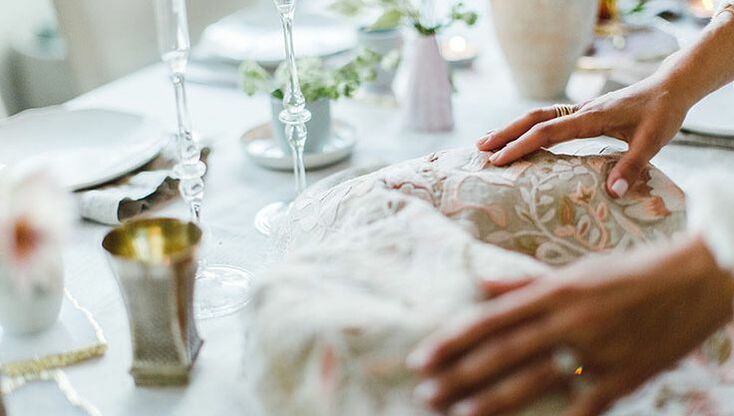
On Shabbat Rituals
Growing up, Friday night held sacred traditions. The family gathered for Kabbalat Shabbat, ate delicious food off a beautifully-prepared table dressed in white, and, if we were really lucky, sat for hours singing nigunim at the top of our lungs. Unless one of us was invited to spend Shabbat with another family, we were not excused, which was fine by me. I relished the Shabbat ritual, the combination of Sephardic and Ashkenazi food at the table, the Iraqi melody of Kabbalat Shabbat coupled with the decidedly Ashkenazi nigunim.
That was our Shabbat. Saturdays were not as traditionally celebrated. While living in Israel, as Shabbat was the only day off from school and work, we ran around from one family member to another, by car, spending precious time with cousins and grandparents. On nice Saturdays in Israel, we would either spend the day on a beach with cousins or traveling to a field for a family picnic.
Now, with full-time jobs that keep us busy late on Fridays, I’m even more amazed at what my parents were able to pull off on a weekly basis. I have longed to recreate the magic of the Friday night ritual for my own children, but most weeks have failed to do so. Friday night is still spent as a family, and no one is excused unless spending Shabbat with another family, but family night is just as likely to be spent at the movies or dining out as it is in front of a nicely-dressed Shabbat table for Kabbalat Shabbat.
Does it matter? As long as my kids understand that Friday night is a sacred time spent with family as a unit, does it matter what we’re doing? I’d argue that yes, it does. That as we look from one generation to the next, the best way to maintain rituals is to root them in some of the traditional elements associated with its origin. A warm challah, the blessing over the wine, dare I say a nigun. Something to separate the everyday from the holy. To usher in the Shabbat bride in her white dress. To exhale the stress and inhale the joy of the moment. And it is that. Just a moment. Because Saturdays are for sports, and music, and homework projects, and errands, and, if we’re lucky, a family bar/bat mitzvah so we can attend shul together. But Friday night? That’s the time I plan to reclaim.
My husband and I have embarked upon a kitchen renovation. And as he excitedly discussed the ability to entertain post-mayhem, he paused and looked at me and said “Shabbat. We can finally have Shabbat.” And I never loved him more. Because even though he’ll likely never sing nigunim with me, and the kids will roll their eyes as tears gather in mine as I sing off-key, knowing that, as always, we are aligned on the “big stuff” makes it all worthwhile.
How do you mark Shabbat with your family? Just as importantly, which Jew-ish traditions are non-negotiable for you and your family?
